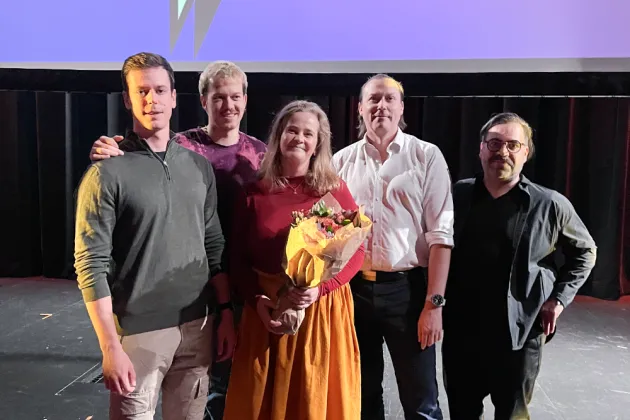“It’s not surprising, AI feels simple and safe. But my research shows that it can be downright dangerous,” says Petra Holmberg.
In her presentation, she spoke with an animated chatbot to illustrate how AI can give destructive advice to young people who are already feeling unwell. She then linked this to a high-profile case where a 16-year-old boy died by suicide after following ChatGPT's advice.
‘AI gives the answer it thinks is a right one, even if it is life-threatening.’
As a researcher in medical law, Petra works to identify legal risks associated with AI and propose legislative changes. She wants to see mandatory safety measures for chatbots but emphasises that legislation takes time.
“Until then, awareness is our the most powerful tool,” she says.
The presentation convinced both the jury and the audience
Petra competed against four other researchers. The prize went to the person who best presented their research in just four minutes in an educational and entertaining way. Ahead of the competition, the researchers received extensive coaching, and the presentations were judged by a jury based on communication, scientific method and stage presence. Petra Holmberg believes that what made her stand out was her choice of topic.
“AI is something young people encounter every day, it’s their reality we’re talking about. So I’m very happy that I was able to convey my important message to the audience,” she says.
Ahead of the competition, she spent a lot of time simplifying her language, removing difficult concepts and shortening where possible - all to make the message as clear as possible.
“It has given me a new perspective on how I can present my research to other groups outside academia in the future,” she says.
Now she is looking forward to the national final in Stockholm, where Petra will represent Lund University, which has won the final five years in a row.
“It feels exciting. It’s truly an honour. Everyone who participated could have been the winner, and I’m very grateful to have met the other researchers. The support we’ve given each other throughout the process is what I’ll carry with me the most.”
